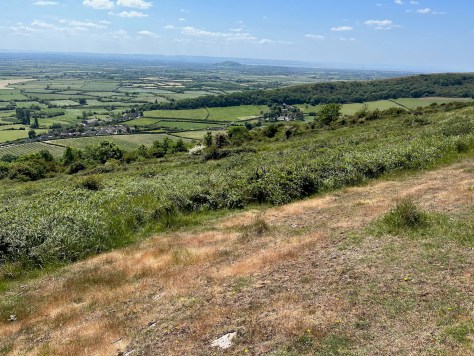I spent most of the week working from home, it is exam time for some in the house, so I was around to provide lifts to early revision sessions, or to ensure functionality in case of delayed buses. I had intended to work in the office at least one day this week, but I was also expecting a call from the garage about my car, and it would have been easier to pick it up travelling from home, than from the office.
I am currently taking a leadership course at Jisc, and this week I completed some more units from the Institute of Leadership. I have extensive management and leadership experience, running teams of various sizes, complexity and geographically distributed. I have planned, designed, and delivered shared services for consortia and complex organisations. I have also managed multi-million pound budgets and projects. In addition I have delivered management and leadership training, both at Jisc, to universities, and was a Management and Business Studies lecturer back in the 1990s.
Having said all that there is still room to both learn new things and to update existing knowledge. I also want to affirm my understanding of leadership as well. The course has been useful for these things.

Had a couple of internal meetings this week, they were scheduled for longer than they actually took. Though it’s nice to have time back, it would be even better if we had that time back before the meeting took place. Planning meetings takes time for the person planning the meeting but can save a lot more time for those participating in that meeting. Do they even need to be in that meeting?
I have written about meetings over my Technology Stuff blog. Back in 2021 I reflected on an article by Atlassian on making meetings better, useful and interesting.
Running effective meetings isn’t simply a matter of doing the obvious things like sharing the agenda and starting on time. While those things are important, they’re just table stakes. The real key to running a great meeting is organizing and running them with a human touch – not like some corporate management automaton.
I also wrote about how “Meetings are a waste of time”
The perspective we can solve engagement issues by having meetings, and so we need to improve the online meetings, misses the key problem, which is the lack of engagement. This is a leadership and management challenge not just about improving online meetings. People have a personal responsibility to engage with corporate communication, give them choice, make it easier, but to think you solve it by having a meeting, is a similar thinking that people read all their e-mail.
I enjoyed reading this HEPI article on future scenarios for Higher Education.
The author, Professor Sir Chris Husbands, is the former vice-chancellor at Sheffield Hallam University. He develops four plausible scenarios for the future of English higher education and looks at what they could mean for students, universities and government.
Scenario 1 considers what happens on the current funding trajectory.
Scenario 2 looks at what a higher education sector fully funded for high participation, research and innovation might look like.
Scenario 3 explores the implications of a tertiary system.
Scenario 4 considers what a more differentiated system might look like.
I have written some scenarios up as future visions as prompts for discussion. The HEPI visions are much more near-future (and probably more realistic) than my visions. However my future visions are not supposed to be accurate predictions of the future, more as discussion pieces to prompt thinking about how higher education can change.
Found this article on Wonkhe interesting on the future financial sustainability of higher education: Why I wouldn’t bet against a fee rise after the election.
It’s long been assumed that whatever the outcome of the coming general election, fees would remain stuck in the freezer for the time being. We’ve pored over Public First polling that has neatly demonstrated how unpopular raising fees would be and concluded that no political party could feasibly contemplate this. But the ground is now shifting beneath our feet and I think a modest but significant fee rise looks more likely than ever.
I think that may happen, as a last resort if there are real possibilities of universities failing, as well as declining international student recruitment, then the (next) government may need to raise fees to ensure that universities survive financially.
I continued to do some researching and then writing June Intelligent Campus newsletter. This is posted over on the Jiscmail mailing list for the Intelligent Campus.
I have been working on an Intelligent Campus Maturity Tool, this has required me to map out competency statements that institutions would require to assess their current state of readiness in relation to smart and intelligent campus.
Wrote a section for our board report on the work I have been doing.
I planned, prepared and then cancelled my Senior Education and Student Experience group meeting. I have now been asked to attend UUK Round Table on the same date.
























































